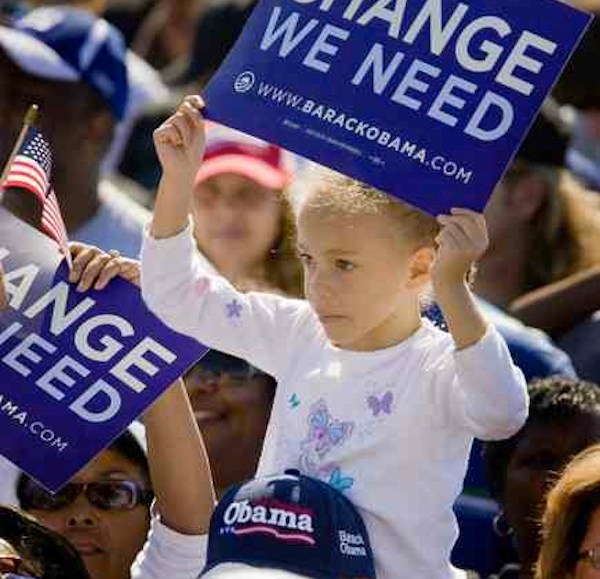Secure your place at the Digiday Media Buying Summit in Nashville, March 2-4

For a big brand like General Electric, publishers are too often falling short, mostly trying to do little more than sell ad space, according to Linda Boff, executive director of global digital marketing at GE.
Brands are looking to partner with publishers that are willing to work with them to create unique experiences that go beyond a little box that says, “sponsored by GE.” This is particularly true in an era when brands also consider themselves as publishers.
“When a publisher or a media company is enlightened is takes pressure off of everyone,” Boff said at The Digiday Brand Conference in New York yesterday. “We want to depend on them for more than just distribution and scale. We are so in this brave new world, and we get frustrated with a dressed up approach [like] selling [us] a great microsite to sponsor. This is not modern or contemporary.”
At the same time, publishers would like to play a bigger role in helping with creating the actual idea for a program, working with both brands and their agencies to help bring an idea into fruition.
Elena Sukacheva, vp of strategy and client solutions at The Economist, said that sometimes the agencies are hesitant to let publishers play a bigger role in the campaign planning.
“We like to get together with a brand and understand what they are trying to do with a campaign,” Sukacheva said. “Publishers need to get into this process early on. But it can be difficult to convince the agency that we are not there to compete with them.”
According to both Boff and Sukacheva, the only way for an advertiser to get the best for their advertising buck, the brand, agency and publisher need to learn to work together. Agencies have their strengths: media buying, planning and creative, while the publishers know their own digital properties and what readers are most receptive to.
Beyond the role of the publisher in the new digital ecosystem, Boff talked about what it means to have a truly integrated approach to marketing in this day and age. It doesn’t mean being on every platform just to be there. Brands need to be cautious in choosing which platforms and channels they use, evaluating the options for each and every program. Boff believes that content should be at the center of it all.
“The strategy should start with who you are as a brand and what you are trying to do and then everything else falls into place after that,” Boff said.
More in Media

Media Briefing: Turning scraped content into paid assets — Amazon and Microsoft build AI marketplaces
Amazon plans an AI content marketplace to join Microsoft’s efforts and pay publishers — but it relies on AI com stop scraping for free.

Overheard at the Digiday AI Marketing Strategies event
Marketers, brands, and tech companies chat in-person at Digiday’s AI Marketing Strategies event about internal friction, how best to use AI tools, and more.

Digiday+ Research: Dow Jones, Business Insider and other publishers on AI-driven search
This report explores how publishers are navigating search as AI reshapes how people access information and how publishers monetize content.





